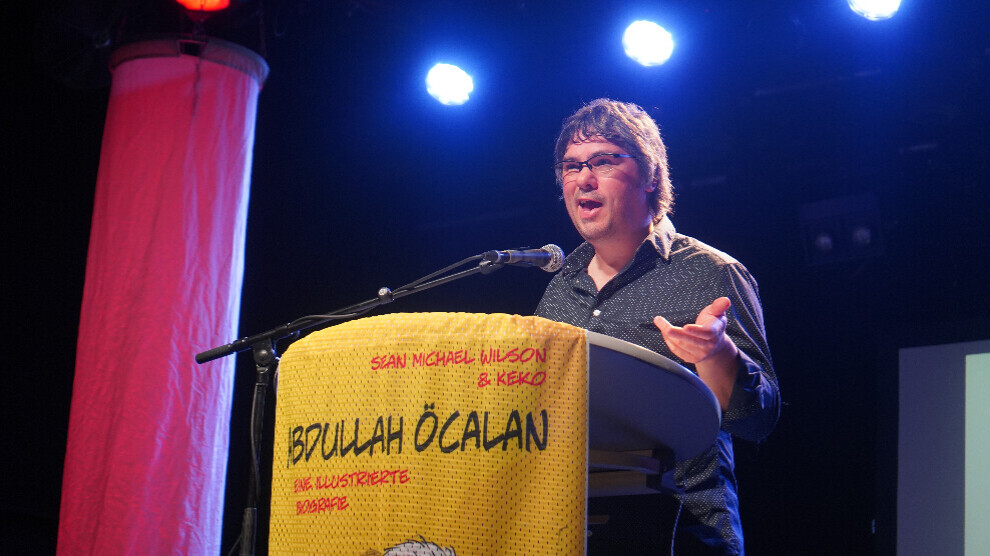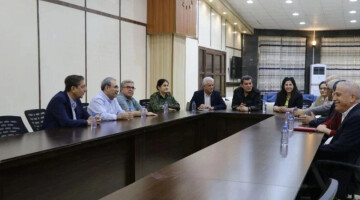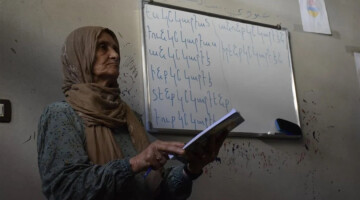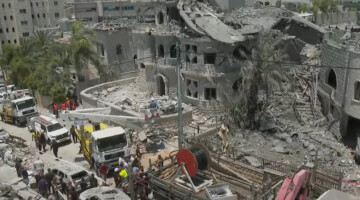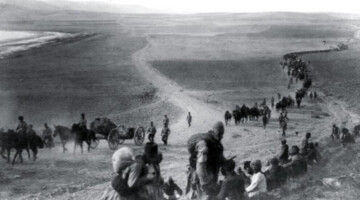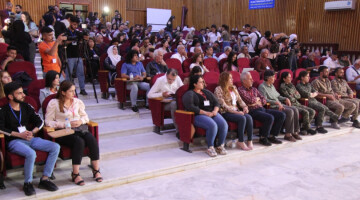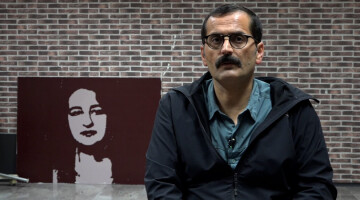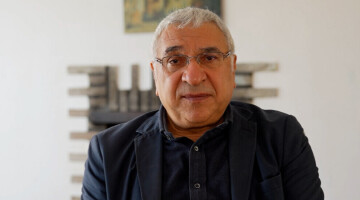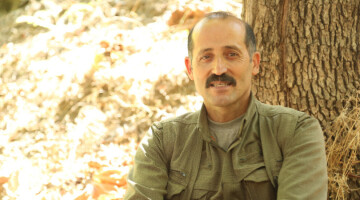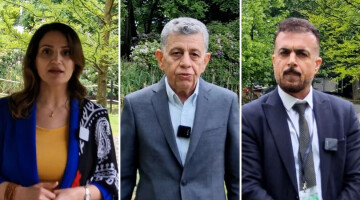Seán Michael Wilson is an award-winning Scottish comics writer currently living in Japan. His books deal with history, politics and social issues and have been nominated for the Eisner and Harvey Awards. "Secrets of the Ninja" was awarded the International Manga Award in 2016. His most recent work is the graphic novel signed together with the Kurdish illustrator Keko, “Abdullah Öcalan – An Illustrated Biography”, which has so far been published in German, English, Kurmanci and Turkish and was presented in Berlin on 4 April. ANF spoke to Seán Michael Wilson about the book.
How did you come into contact with Abdullah Öcalan's ideas?
I met him through the International Initiative. I've done a lot of things. We call them graphic novels, kinds of comics for adults. These comics are not intended for children. I did a graphic novel in association with the Labor Party in England and Jeremy Corbyn, the then leader of the Labor Party, and we did a book about the struggle of people in England in a union. And when we finished that book, we thought about what the next book will be about. And then someone, I don't remember if it was me or someone else. I think it might have been Estella Smith, a long-time Kurdish people supporter. Maybe she suggested it, but I don't remember, someone suggested that we do a book on Kurdistan. Since then, thanks to Estella and the International Initiative, I've learned more about Kurdistan and Abdullah Öcalan. Until then, I didn't know much. Now that I've written the book and researched it, I know a lot.
Wasn’t the writing process difficult?
The writing process was not difficult. For me, it's easy because I've already written 40 graphic novels and comics like this. So it was pretty simple, but it was difficult to provide the right information. We had to make many corrections in order to accurately reflect the facts about the life of Abdullah Öcalan, Rojava and various issues in Kurdistan in general. This is, of course, very, very complicated. So I made some mistakes or there were things I didn't know. So it was very difficult to get accurate information. As I said, the International Initiative was very helpful. It wasn't difficult for me to write the actual scenario because that's what I do every day.
I think there was another problem: you speak English and Japanese; Keko is Kurdish and did not speak English before. How did you do that?
That wasn't unusual for me, because I work with artists from all over the world, from around 20 different countries, and it's completely normal that not everyone can speak English well, and I don't understand their languages. So it wasn't the first time, and it wasn't a big problem for me, because the International Initiative organized the Turkish and Kurdish editions, so I didn't have to worry too much about it. For me, this is normal, but for Keko it might have been difficult.
As you said, you have written more than 40 graphic novels. What place does the Öcalan biography occupy among them?
I think it's the most complex of the 40 books I've written. There are about two or three different styles or not styles, genres, types. One of these genres I call "social" and by that I mean books about history, politics and sociology. I have written about ten books in this genre. This was probably the most complicated. It is certainly the most controversial because it is obviously talking about the present or recent history. The book about the Labor Party and the union began 700 years ago with the peasants' revolt. If you're right, it's easier because history is hundreds of years ago. People aren't really angry about it anymore if you are wrong. Abdullah Öcalan is now in prison and the conflict between Turkey and Kurdistan is currently going on. So the point is that this is an issue that is happening very much now, today, and is not yet finished. That makes this graphic novel something special among my books.
I have a question about Abdullah Öcalan's freedom. He is on the island of Imrali and there has been no news of him for 37 months. A campaign is calling for "freedom for Abdullah Öcalan and a political solution to the Kurdish question". What do you think of this campaign?
That's a problem. I mean, the people in this place in Berlin know this topic very well. Maybe you know it too. The International Initiative knows it. But, of course, most people in the world don't know anything about it. Most people don't even know where Kurdistan is. There is a lack of information about it. What should we do? I hope we can also publish this book in French, Italian and Spanish. It will help a little to spread information and knowledge about what is happening, not just the idea of releasing Abdullah Öcalan. The idea of democratic confederalism is a model showing how the world can be organized. I think this is very, very important.
Therefore, it should be better known. Of course, that's one of the reasons why it's not talked about, because it poses a threat to the existing capitalist system. When we have an alternative that actually works, the mainstream media generally doesn't want to talk about it because it's too dangerous. That's one of the good things about comics. Comics are an art form or mass medium that can be read by many people, but you can do them in a very clever way. It's a kind of grassroots creativity that's hard to achieve on television, which is still very mainstream. That's one of the reasons I like making books as comics. You can design them intelligently and many people can read them. So I hope that our books in different languages will help spread knowledge about Öcalan and democratic confederalism.

